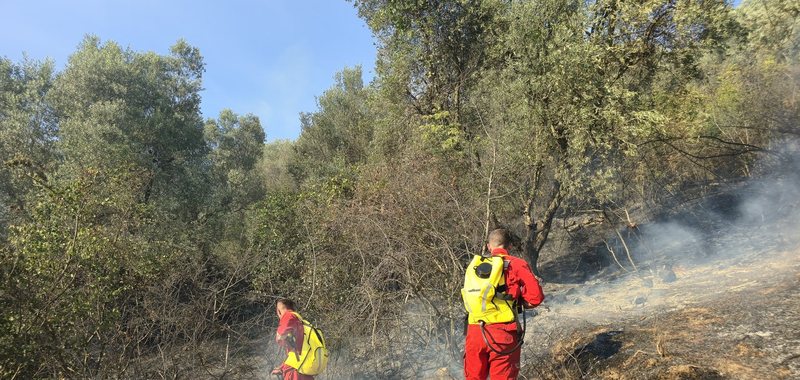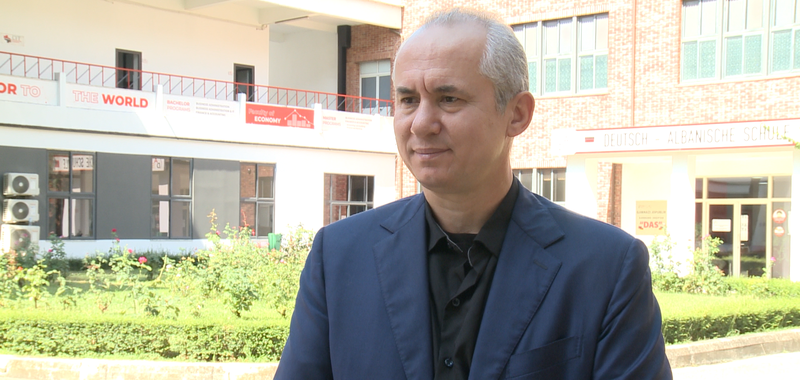Why are heat waves getting worse? - Warming oceans are accelerating the climate crisis

Over the past year, heat waves have hit many parts of the world hard, breaking records and putting the lives of millions of people at risk. In the United States, temperatures in June exceeded 40°C, while in Europe, an “unusual” heat wave hit in early July, earlier than usual.
According to scientists, these extreme events are a direct consequence of climate change. The rise in temperatures is being strongly influenced by greenhouse gas emissions, caused mainly by the burning of coal, oil and natural gas.
A report from World Weather Attribution shows that the heat wave that hit Central Asia in March was about 4°C hotter due to climate change. Experts warn that unless emissions are reduced, global temperatures will continue to rise and we will enter “uncharted territory.”
The oceans, which have so far absorbed about 90% of the excess heat generated by global warming, are also in crisis. Their surface temperatures have reached record levels, raising concerns that they are reaching the limits of their capacity to absorb more heat. If that happens, more heat will remain in the atmosphere, worsening the situation.
Meanwhile, the consequences for humans are increasingly severe. While for some, summer is a time of vacation and relaxation on the beach, for many it represents a real threat to health. NASA says that heat stress has doubled in the last 40 years. In areas with high humidity, when the temperature exceeds 35°C, the human body is no longer able to dissipate enough heat. In these extreme conditions, people can even risk death.
During the recent waves in Europe, last summer alone, around 2,300 deaths were reported in 12 European cities. In 2022, the number of heat-related deaths on the old continent reached up to 61,000.
Heat waves cause water shortages, droughts, fires, and biodiversity loss. They also harm the economy by reducing the productivity of workers, especially those who work outdoors.
Experts are calling for immediate measures, including staying in cool environments, using low-carbon technologies for cooling (such as solar energy), and changing work and school schedules to avoid the hottest hours of the day.

In Himara, rural infrastructure priority - 200 million lek tender for the Athal road
Himara Municipality has announced the opening of the tender for the reconstruction of the Athal road. The limit fund made available for this project is 200......

Albania, 16 agreements on pension recognition - Institutional cooperation for social security
Albania has signed and is now implementing bilateral social security agreements with 16 different countries, guaranteeing protection and benefits for......

Bus movement in Tirana in real time - Citizens can follow the entire line they travel online!
Citizens can follow buses in real time, seeing the entire route they travel from departure, stopping at stations, etc. Public transport in Tirana is now......

High informality in short-term rentals - Only 17.5% registered. Their prevalence, a challenge for the growth of tourism
The new tourism strategy 2025-2030 highlights the high levels of informality in the short-term accommodation sector. According to the document, the......

21 fires in the country, 3 are still active - AKMC: High risk expected in Fier region
21 fire outbreaks have been recorded in the last 24 hours in the country, of which 3 are still......

What is happening to young people in Albania? Our country loses 6.4% of men aged 25-29 within a year
An analysis of the annual population change in Albania conducted earlier by “Scan Intel” and divided by age groups highlighted an alarming demographic......

Tourists buying gold in Albania - Britons and Germans attracted to high-karat gold
Not only to enjoy the country's beaches in the south or the beauties of the Albanian mountains, but also to buy various accessories made of gold, silver or......

"The new Ziraat Bank will increase competition in the market" - Zefi: Citizens will benefit from new products and reduced interest rates
After years of consolidation, the banking market is now set to undergo significant changes with the Central Bank granting preliminary approval for the......


















